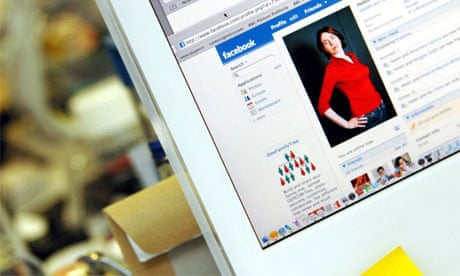The moment I decided I had to leave Facebook was when I discovered that its latest advertising gimmick sent information about members' purchases on other sites to Facebook even when they were not logged on there. It was bad enough that this information be sent at all to the company. I don't see it is any of Facebook's business what I do elsewhere on the web. But that the company should be sent the information when I am not even logged in is intolerable.
I know it is possible to opt out on a case-by-case basis, but that should not be necessary. At a minimum, Facebook should supply a global opt-out, and a properly run company that was honest with its customers would offer an individual and clearly explained opt-in for every single site that runs its advertising software.
Would you like to tell all your friends, and even your Facebook friends, what you have just bought from Blockbuster or Travelocity whenever you buy it - whether or not you are logged in to Facebook? That would be the honest question, which Facebook refuses to ask. It is not entirely rhetorical: the answer is sometimes and for some people "yes".
There is a gaming site, Kongregate.com, whose chief executive told Macworld that his users seemed happy with the programme. But gaming is a sociable activity, entirely different from shopping for shoes, books or travel. Anyone who really wants to tell the world about their new shoes can do so easily enough on Facebook itself, without the information being automatically posted on their feed.
Nor is it just your friends whom you tell. Facebook has not said how long the information will be stored on its servers - and it is all sent there by participating sites, whether or not you have opted out. The cleaning, if it is done at all, is done on Facebook's servers. There is no reason to suppose that some of this data won't eventually leak out into the public domain, as happened with the Google search queries that AOL released last summer.
Facebook's data is far more personal than Google's because it is all tied to specific, real people. One might say that Google is more intimate, since a map of Google searches shows pretty much everything you have been interested in, but it is possible to use Google more or less anonymously, though not, perhaps, if you use Gmail or the calendar.
Social scientists are already using Facebook as a laboratory to conduct research that is far more detailed and accurate than anything that could be carried out using old-fashioned data acquisition, where people answer questions consciously rather than simply being traced in their everyday online life. As Professor Samuel Gosling, a psychologist at the University of Texas, Austin, told the New York Times, "There is a rule that you are allowed to observe public behaviour, but it's not clear if online behaviour is public or not." It seems to me perfectly clear. It's all public - at least to the companies which own the servers.
So that is why I decided to leave Facebook. I don't like where it's going, and I don't see why I should always be on my guard against whatever new tricks it thinks of to deliver my data to advertisers.
It was then that I made the interesting discovery that you can't actually leave Facebook once you have joined. Like the Hotel California, it is a place that you check out of but you can never leave. Sure, you can "deactivate" your account, but you can't scrub it out. Friends will continue to see your profile and may continue to send messages to it, which will be lost forever. The logon and password are preserved, presumably forever, and so are the cookies that identify you to Facebook - and which can be used to tie your Facebook identity into advertising sites.
All that "deactivation" means is that you've handed over another piece of data to the company: you can't even get as far as clicking the final button without answering a question as to why you want to leave. I said it was in protest against its advertising practices. I assume, since very few other people will have done so, it will learn from this that nobody really cares. But if there is anyone in the world who has not yet signed up to Facebook, my advice is to stay well clear. It is not a company that means its users well.

